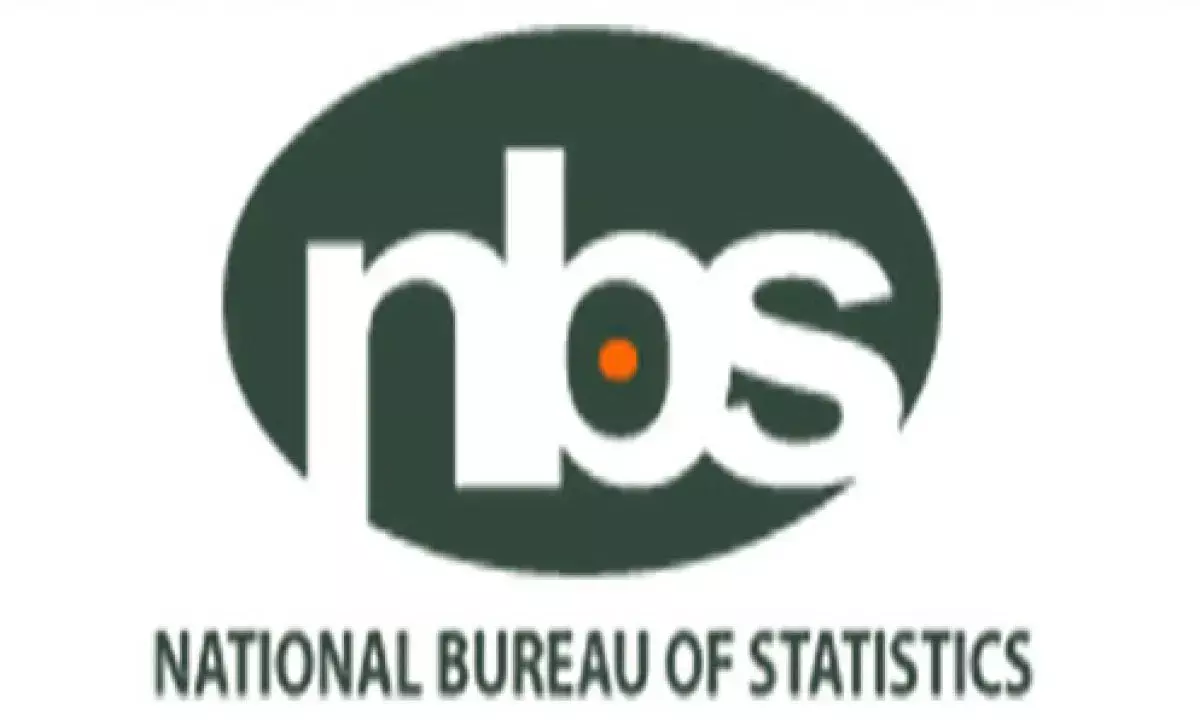Male-dominated culture generates high GBV rate - Report
He said that domestic violence, rape and sexual abuse as reported in the research suggested that these forms of GBV were used as means of expressing male dominance and suppression of women in this context.;

The National Bureau of Statistics (NBS), and African Centre for Leadership, Strategy and Development (Centre-LSD) has attributed high rate of Gender-Based Violence (GBV) on male-dominated culture.
This is contained in a study conducted by both organisations, which was unveiled in Abuja at a "National Masculinity Conference on Gender-Based Violence (GBV) in the Extractive sector in Nigeria''.
Supreme reports that the study is tagged: "Analysis of Forms and Prevalence of Gender-Based Violence (GBV) in the Extractive Sector in Nigeria''.
The conference was jointly organised by Centre- LSD in collaboration with NBS with support from Ford Foundation.
Presenting the findings of the report, Dr Akin Oke, said that the study was conducted in six states namely: Ebonyi, Edo, Ekiti, Nasarawa, Taraba and Zamfara, cutting across the six geo-political zones of Nigeria.
Oke said that available evidence from the research identified patriarchy and male-dominated culture as drivers of GBV in the extractive sector.
He listed some common forms of GBV across mining communities to include: insults, stalking, assault, exhibitionism, threats, being groped, sexual touching, attempted forced sexual intercourse and rape.
"The most prevalent forms of GBV in mining communities are domestic violence-31 per cent, forced marriage-15 per cent and sexual abuse-14 per cent.
"However, there is a study-defined category that highlighted other forms of GBV being experienced in the communities which included: rights violation in terms of safety concerns and lack of protective materials not provided.
"Others are economic abuse, women being paid less than men for similar task on mining sites, women and girls driven from sites with threats of rape and sexual abuse.
"There is also manipulation of underage girls for sexual favours, underage girls' arms couriers and illegal mineral smugglers," he said.
According to him, most artisans and small-scale miners interviewed believed that mining is seen as a male occupation, women are, therefore, not expected to participate, at least not on the same level
He said that domestic violence, rape and sexual abuse as reported in the research suggested that these forms of GBV were used as means of expressing male dominance and suppression of women in this context.
Oke, therefore, said that the study recommended specific actions required of the government, civil groups and other stakeholders in addressing GBV in the extractive sector, such as sustained advocacy for policy review.
He added that capacity strengthening in implementing existing mechanisms toward reducing the gender impact of extractives activities in current policies and regulations was pivotal.
This, Oke said was to ensure that the gender impact of extractive activities were included in policy and regulations to create gender-sensitive artisanal small-scale mining sector to transform it into a viable revenue provider.
According to him, the report recommended the conduct of a national survey on GBV in the extractive sector to inform policy reviews and update data on women's significant contributions to mining activities.
He noted that community members should continue to protect the rights of GBV survivals and continuously sensitise people to end negative impact of exaggerated masculinity associated with mining.
Dr Simon Harry, the Statistician-General of the Federation, represented by Mr Tunde Adebisi, Director, Social and Gender Statistic Department said that the collaborative initiative was in line with NBS's philosophy.
"The Nigerian law says that for any data to be accepted, if NBS is not part of the process it won't be recognised because it must have the NBS stamp as accepted," he said.
Harry said that the challenge with the mining sector which could have been another gold mine for Nigeria apart from oil was that it was being done haphazardly.
"But if properly operated, it will add to Nigeria's Gross Domestic Product (GDP) and curb poverty," the statistician-general said.
He, therefore, called for a legislation that would streamline all mining associations in Nigeria, "to know their activities, output and to know where it is going for effective management''.
Also speaking, Mr Monday Osasah, the Executive Director, Centre-LSD said that in the last six years, the centre had been working to deconstruct the concept of masculinity.
Osasah said that the centre was working to change the face of advocacy from the victims to the perpetuators of GBV who were mainly men.
"We discovered that even when the perpetuators are known and the victims are also known, there is no clear statistics to write anything about GBV, there is no where you can get the data.
"So, what we need when we have this support from Ford Foundation is to go deeply into the subject matter to generate data that can be nationally accepted, hence the need to collaborate with NBS became imperative.
"The outcome of this research is that right now, Nigeria has nationally recognised data in terms of GBV in the extractive sector," he said.
Osasah said that presently, Nigeria had a resource reference in terms of GBV in the extractive sector.
He, however, said that the country could not be covered due to adequate funding and called on stakeholders and developmental partners for support.
This he noted was imperative to cover all the states due to the high level of violence in the extractive sector.

